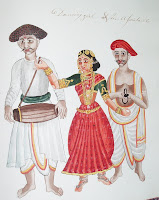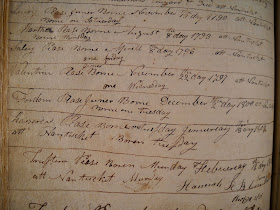 In January 1844, the Rev. Daniel Poor, Class of 1811, sent a package to his classmate the Rev. William Cogswell. At that time, Cogswell was a professor of history at Dartmouth and a member of the Northern Academy of Arts and Sciences, an organization established in 1841 to provide an opportunity for Dartmouth students, faculty and local ministers to exchange their "views on great and important subjects."
In January 1844, the Rev. Daniel Poor, Class of 1811, sent a package to his classmate the Rev. William Cogswell. At that time, Cogswell was a professor of history at Dartmouth and a member of the Northern Academy of Arts and Sciences, an organization established in 1841 to provide an opportunity for Dartmouth students, faculty and local ministers to exchange their "views on great and important subjects." Rev. Poor spent his life as a missionary and educator, primarily in Ceylon. His package to Rev. Cogswell contained a selection of several items which he felt would be of interest including a grammar of the Tamil language, issues of The Morning Star (a newspaper published by the American Mission Press in Jaffna), a Tamil geography, and a volume of "native paintings." This volume contains over 90 original watercolors and depicts people of various occupations and castes in India and Ceylon.
Rev. Poor spent his life as a missionary and educator, primarily in Ceylon. His package to Rev. Cogswell contained a selection of several items which he felt would be of interest including a grammar of the Tamil language, issues of The Morning Star (a newspaper published by the American Mission Press in Jaffna), a Tamil geography, and a volume of "native paintings." This volume contains over 90 original watercolors and depicts people of various occupations and castes in India and Ceylon.Poor's gifts were held within the Northern Academy's library which was taken into the general Dartmouth Library collection upon the Academy's dissolution in 1904.
Ask for Rauner Codex 001971 to see the original watercolors.

